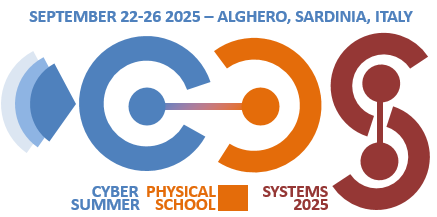Armando Tacchella
In the past few years, the notion of cyber-physical system (CPS) emerged to define complex systems intertwining physical processes, hardware, software and communica tion networks. When considering functional and non-functional requirements analysis in adaptive (also reconfigurable) CPSs, we face the problem of guaranteeing desidered properties in implements capable of modifying their internal parameters to achieve and maintain a prescribed quality of service even in the face of a partially unknown and mutating environment. The addition of “adaptive” remarks the sharp distinction between systems which only react according to prescribed control policies and systems which can learn and/or update their control policies. While adaptation is a desirable (non-functional) requirement for CPSs in many circumstances, most CPSs are deployed in applications where misbehavior can cause serious damage to the surrounding environment, which makes requirement analysis mandatory. Unfortunately, adaptivity is conflicting with other requirements, e.g., safety: safety can be easily increased by reducing the amount of automatic reconfiguration, while changing internal parameters during operation may yield unsafe control policies. The goal of this lecture is to explore techniques and tools that can support requirement analysis in the context of adaptive cyber-physical systems.
 
Lecture Slides

